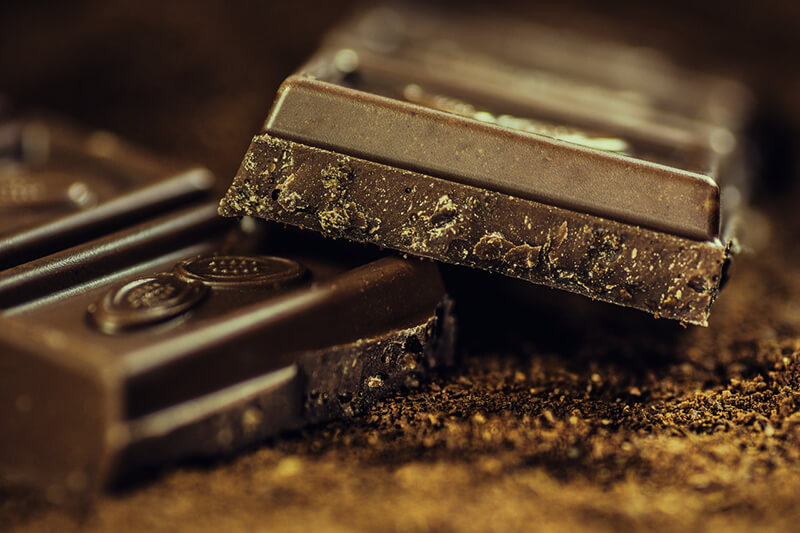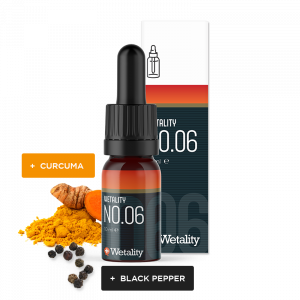
For hundreds of years, chocolate has been considered as a healthy food. In the beginning, people drank chocolate (chocolate is made from cacao or cocoa).
Ever since Spanish explorers have brought chocolate back to Europe in the 16th century from Mayans, who drank cocoa cold and with spices, chocolate was valued as a special drink, as well as taken as a medicine. Drinkable chocolate has been used for years to treat ailments and maladies. What does this special food/drink have?
Scientific reasons why chocolate is good for us
To begin with, sugar, fat, and carbohydrate provide a boost of energy. The chocolate’s seductive mouthfeel is the result of cocoa butter, which melts at approximately to body temperature. Also, chocolate contains theobromine, caffeine, phenylethylamine (PEA), and anandamide. These chemical substances have a profound effect on the brain and show physiological effects on the body.
Theobromine and caffeine are both stimulants. Phenylethylamine is a chemical that our brain releases when we fall in love. It also acts as an anti-depressant by combining with dopamine that is naturally present in the brain. Anandamide helps to stimulate and open synapses in the brain that allow “feel good” waves to transmit more easily.
Serotonin is a chemical in the brain that is released after eating carbohydrates. It is a neurotransmitter that transmits a feeling of calm to the brain and helps to stabilize moods. Endorphins are another chemicals that act to send high levels of energy and feelings of euphoria to the brain and even have the effects of the painkillers. Both serotonin and endorphins are released when eating chocolate and bring a sense of well-being.
Chocolate also contains magnesium, which helps the body manufacture serotonin, vitamins Al, Bl, B2, C, D, and E, as well as calcium, potassium, Sodium, and Iron.
Cocoa for the brain functions
Several studies have highlighted the potential of dark chocolate for promoting cardiovascular health, mainly by improving arterial function, which can help lower blood pressure. Researchers confirmed that cocoa can also help the brain.
Chocolate’s health benefits are largely attributed to compounds called flavonoids — related to those in tea, red wine, grape juice, and many other plant foods. Like other phytonutrients, flavonoids are powerful antioxidants with anti-inflammatory and immune system benefits. In general, the darker the chocolate, the more flavonoids it contains. According to a study conducted at Cornell University, the antioxidant concentration in hot cocoa is almost twice as strong as red wine. Cocoa’s concentration was two to three times stronger concentration in green tea and four to five times stronger than cocoa’s concentration in black tea.

Aging and cardiovascular health
The new study, done by Italian researchers and published in Hypertension, involved 90 people over 65 with mild cognitive impairment (MCI).
This condition causes memory problems more serious than those seen with normal aging, but less severe than those of dementia. It’s estimated that 20 percent of people over 70 have MCI and that 5 percent of those with MCI progress to dementia each year.
After eight weeks, the high-flavanol group did better on a series of memory, verbal fluency, and other cognition tests, followed by the intermediate-flavanol group. Their blood pressure, blood sugar control and oxidative stress levels also improved.
Though flavonoids may have direct effects on neurons and neurodegenerative processes, the researchers concluded that the cognitive benefits were related primarily to better insulin sensitivity, which affects blood sugar control as well as brain function. The benefits may also derive from the cocoa’s effects on cardiovascular health in general and blood pressure.NO.06 – 10 ml drops” width=”300″ height=”300″ /> NO.06 – 10 ml drops[/caption]
Ældning og kardiovaskulær sundhed
En nye undersøgelse, udført af italienske forskere og offentliggjort i tidsskriftet Hypertension, involverede 90 personer over 65 år med mild kognitiv svækkelse (MCI).
Denne tilstand gør hukommelsesproblemer mere alvorlige end dem, der ses ved normal aldring, men mindre alvorlig end demens. Det anslås, at 20 procent af mennesker over 70 år har MCI, og at 5 procent af dem med MCI udvikler denne form for demens hvert år.
Efter otte uger performede den gruppe, der fik de højeste koncentrationer af kakao, bedre på en række hukommelses-tests, flydende tale og andre kognitive tests, efterfulgt af mellemgruppen. Deres blodtryk, blodsukkerbalance og oxidative stressniveauer forbedres også.
Selvom flavonoider kan have en direkte virkninger på neuroner og neurodegenerative processer, konkluderede forskerne, at de kognitive fordele primært var relateret til bedre insulinfølsomhed, hvilket påvirker blodsukkerkontrollen såvel som hjernefunktionen. Fordelene kan også skyldes kakaoens generelle virkning på kardiovaskulær sundhed og blodtryk.






